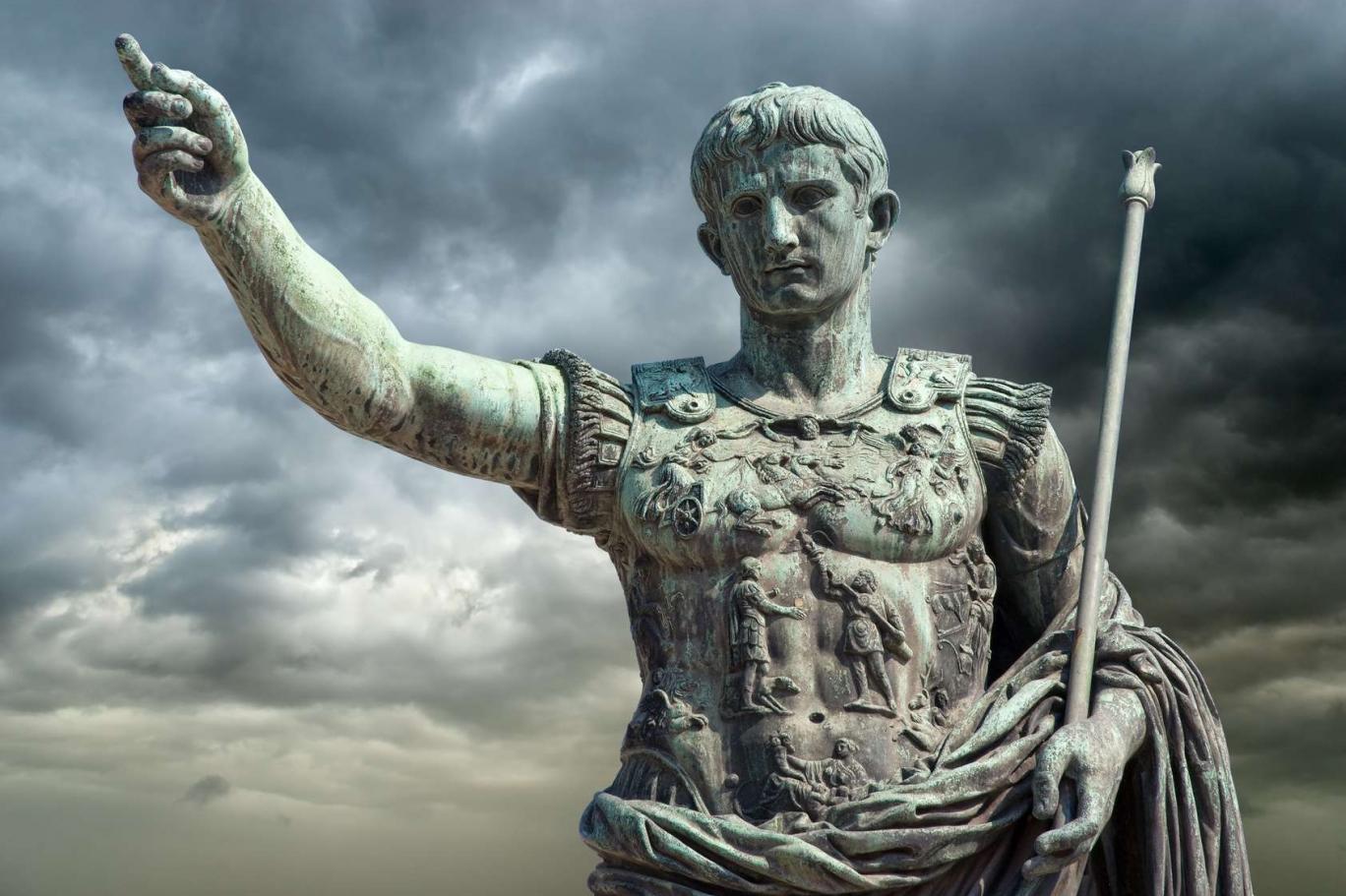First Roman Emperor: Who is Augustus Caesar?
The Roman emperor, the reason why August has 31 days: Caesar's adopted son...

Gaius Octavius, the first Roman Emperor (27 BC to 14 AD), was born in 53 BC to Atia, the daughter of Octavius and Julius Caesar's sister Julia. He had a sick childhood. He was distinguished by his hard work and intelligence. In 45 BC, Julius adopted Octavius. He also declared him his principal heir. Octavius was in Greece when the great statesman was killed in 44. He returned to Rome to claim his great-uncle's will. Joining with Mark Antony, he defeated Caesar's murderers at the battle of Philippi in 42.
After this event, Octavius, Anthony, and Lepidus formed the Second Triumvirate. They divided the huge Roman Empire among themselves and began to rule together. After a while, Le-pidus withdrew. Anthony had begun to neglect his duties. In the end, war broke out between the two. Upon Anthony's defeat to Agrippa in 31 AD, Octavius became the sole ruler of the Roman world. The empire was weary of wars. Octavius started from where the great Caesar left off and tried to establish peace, prosperity, and peace in his country. Although he did not declare himself "king", he ruled like a king. Octavius later assumed the title Augustus, meaning "exalted." After that, he was always known as Augustus Caesar.
For the next forty years, peace reigned in Rome. Country borders were strengthened. Commerce, industry, and the fine arts flourished. He also gave great importance to the beautification and reconstruction of the city of Rome. Although the period of Augustus Caesar was an age of pride for the Romans, this brilliant period would probably not have been possible had it not been for Julius Caesar before.
Details of his life story
He was born on September 23, 63 BC, in the Platinus region of Rome, and died on August 19, 14 in Rome. His father, Octavius, was from a well-known family. His mother, Atia, was also the daughter of Julius Caesar's sister, Julia. When his father died when he was four, Julius Caesar adopted Octavius and took charge of his upbringing.
Octavius was training in Apollonia in the Illyrian region when Julius Caesar was killed in 44 BC. The education of a noble Roman aspiring ruler was different from that of an ancient Athenian citizen or Spartan. This education was not based on pure science, literature and sports, or purely on military service. The main purpose was to learn command and management. This was done in distant garrisons like Apollonia.
When Octavian crossed into Italy, he realized that as Caesar's heir, he was in a difficult position and had to undertake a dangerous mission. He was only 18 years old and did not have enough experience in state administration.
Just as Caesar's murderers saw him as dangerous, it was clear that Mark Antony, the leader of the Caesarian group, wanted to neutralize him. The main support of the young Octavius was the famous orator and politician Cicero. Thus the senate (patricians) was won over by Octavian.
Why are both July and August 31 days?
According to a rumor, "August", the English equivalent of the name August, is dedicated to the Roman Emperor Caesar Augustus. According to a legend, August has 31 days because Augustus wanted his own moon to have 31 days, just like Julius Caesar's month July (July from Julius: July).
New Year's Day in the Julian calendar is in March, and accordingly, February is the last month of the year. The month known as "July" is named after Julius Caesar and lasts 31 days. The Roman Emperor Augustus, who lived after Caesar, also gave his name to a month. However, Emperor Augustus, who could not ascribe to his majesty the 30th month of Augustus's name and the 31st of July bearing Caesar's name, ordered that the month named after him should also last 31 days. On top of that, astronomers take a day from the last month of the year, February, and add it to August. Thus, the month of February, which has a cycle of 30-29 days, is determined as 29-28 days.
